Hickson Compact Galaxy Group 68 is a tight group of galaxies 100 light years away in the constellation Canes Venatici visible in late spring (click on image for full size):
Brighter version with more faint galaxies and more noise (click on image for full size):
the lower two "bright fuzzies" in the image are interacting, surrounded by a faint glow of stars being traded:
the bright galaxy to the left is NGC 5371, also 100 million light years away. it's likely gravitationally related to the group.
100 million years or so ago, a star went supernova in NGC 5371. the photons reached us in January 2020. the supernova remains detectable in this image
my first supernova capture, totally by accident.
nebulae in the outer arm of NGC 5371 are emitting red light due to hydrogen emissions--the hydrogen alpha line. my initial Ha images failed to show any Ha enhancement. it occured to me that the redshift of the receding galaxy shifted the Ha emissions out of the range of my 5 nm filter. so i switched to a 12 nm filter to capture nebula.
Ha image showing bright nebula in the lower right spiral arm of NGC 5371:
many tiny background galaxies and quasars:
i imaged this group back in 2006 with a larger scope (click on image for full size):
the field was too narrow to include NGC 5371 so it was on my reshoot list.
didn't really plan on shooting it this spring, but after creating a pointing model with a refractor on my mount, the sky was relatively dark (possibly related to covid lock down) and the group ideally situated. started this during peak covid lock down in April. my bortle white skies seemed about .5 mag darker, which i attribute to less particulate from car traffic.
image details:
FS102 OLV @ 627.8 mm,
Starlight Xpress Trius 694, 1.49"/Pixel
astrodon LRGB E-series filters
switched from astrodon 5nm Ha, to astronomik 12 nm Ha
ASA DDM60
L 125x30 sec RGB approximately 90 x 90 seconds each channel
Ha 36x5 min, RGB 20x1 minute each channel
4/24-5/27/2020
Bortle white skies
Eastbluff, CA
2006 version
C8, SX H9C
on the red shift of NGC 5371:
z=0.00853
so Ha emissions will be shifted 656.28 nm * .00853 = 5.6 nm, to 661.88, potentially out of the range of a 5 nm bandwidth filter centered at 656-ish (656+5/2=658.5), and even at the edge of a 5 nm NII filter centered at 658 (658+5/2=660.5), not far enough for my wide 12 nm SII filter centered at 672 (672-12/2=666😈). a shopping opportunity! now it's right at the edge of my new 12 nm band width Ha filter centered at 656 (656+12/2=662) 😎
references:
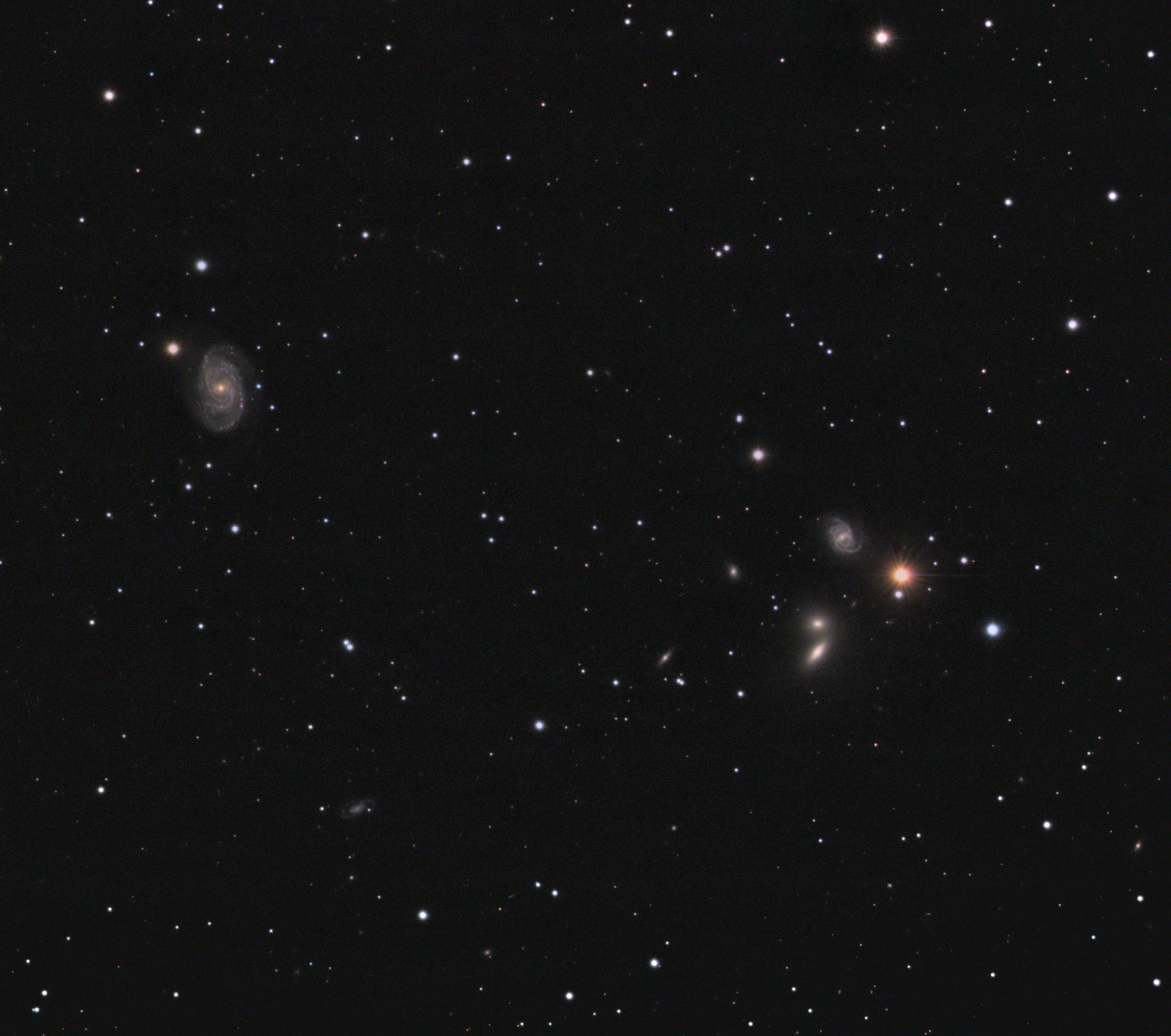
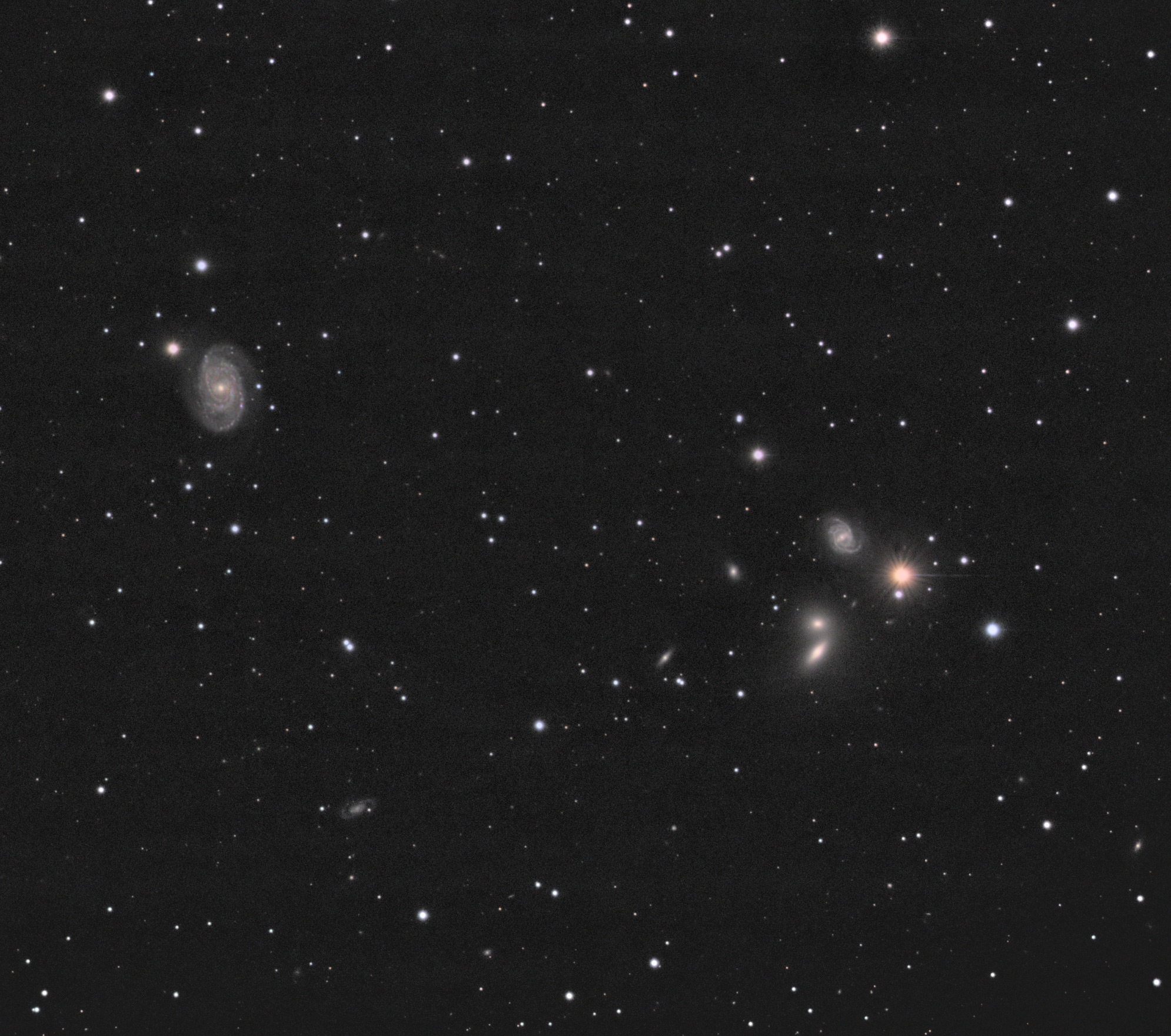
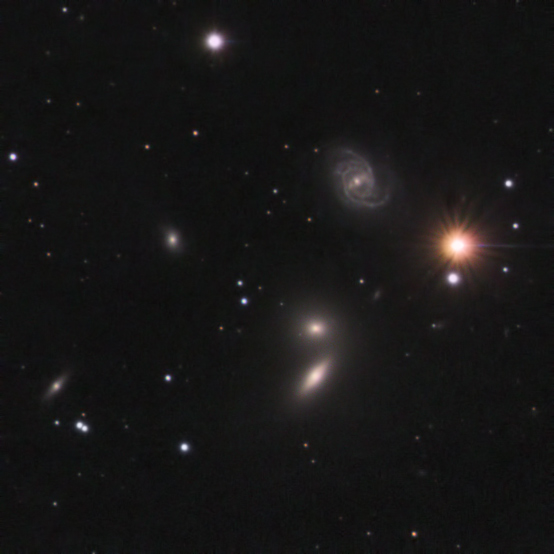
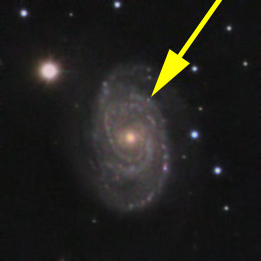
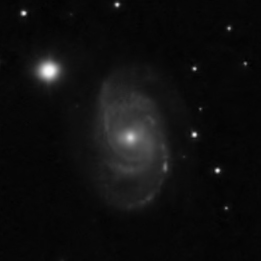
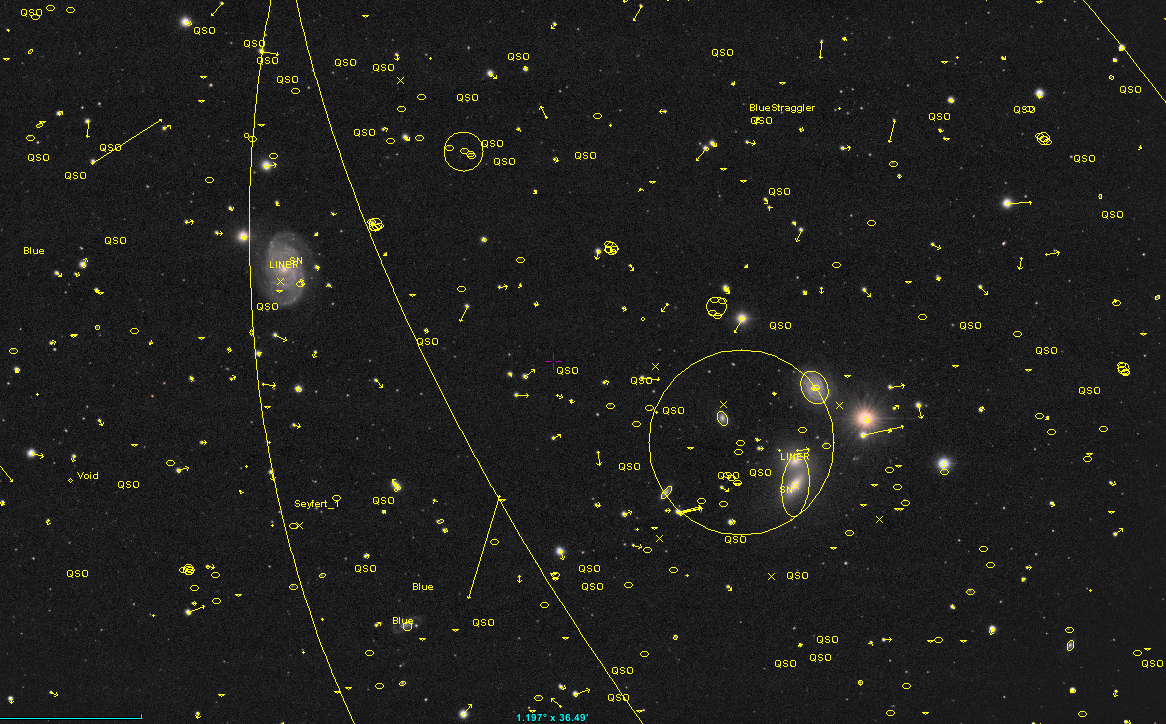
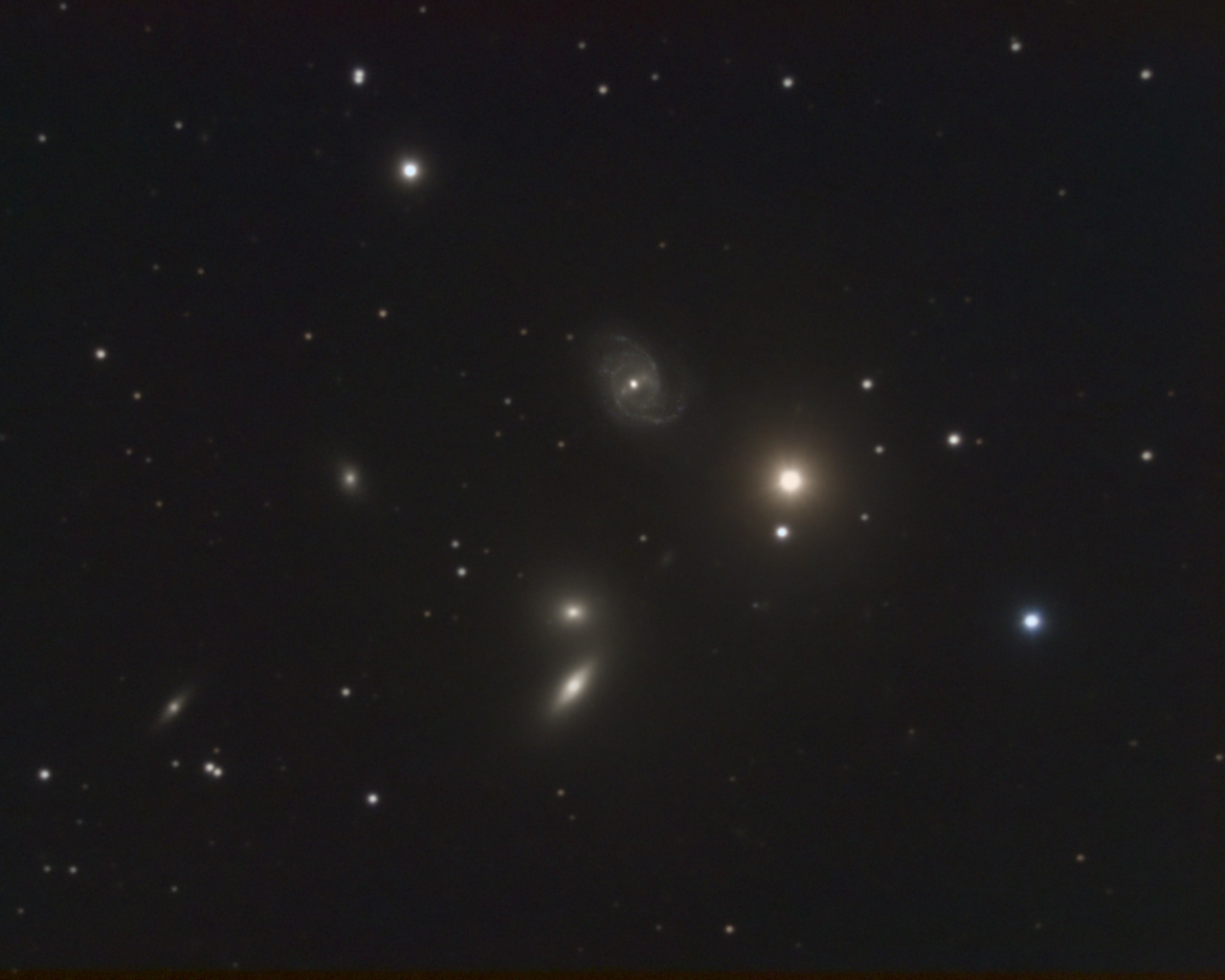
No comments:
Post a Comment